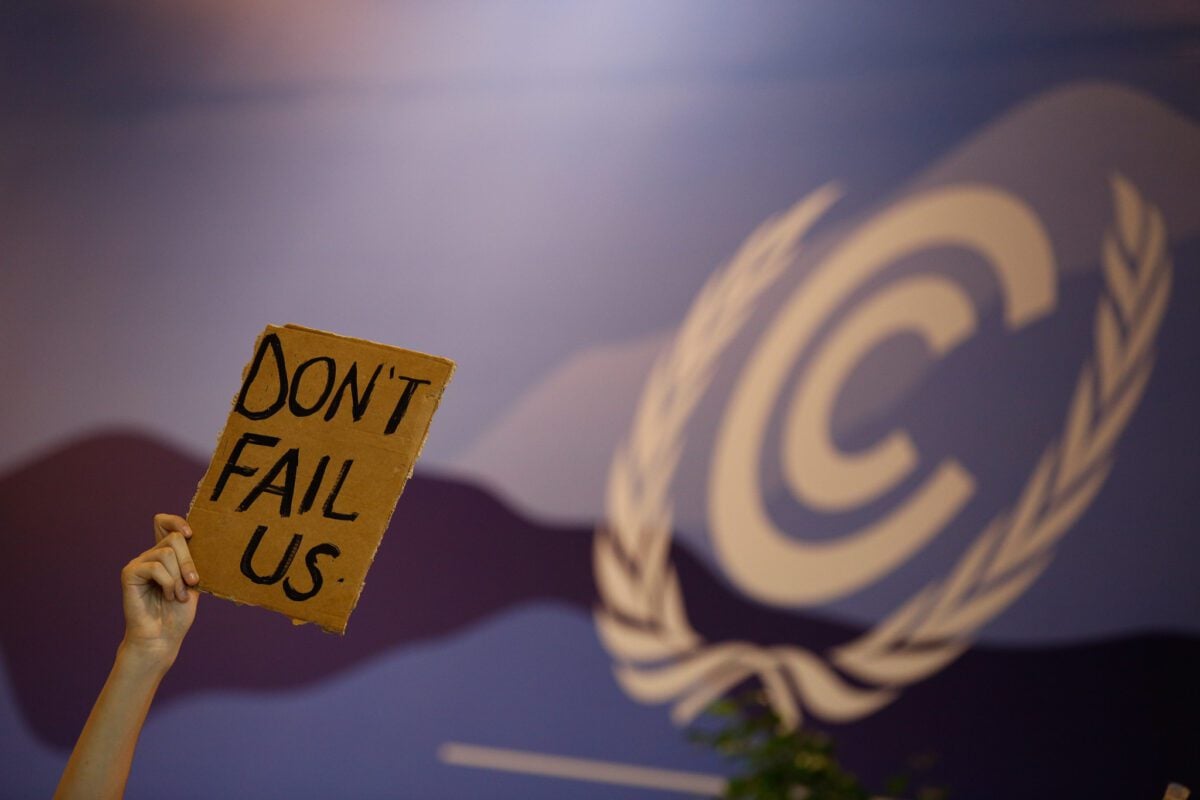The breakthrough agreement at COP27 on loss and damage is an important step forward. But it took nearly 25 years to happen, and developing countries still deserve much more, and much faster.

The COP27 meeting finally came to an end after several extensions beyond the original end date while delegates argued the fine text of the document they will produce. As the curtains fall, one has to wonder how much the conference has achieved over the past 27 meetings.
Over the next few weeks, people will debate whether the Sharm El Sheikh conference was a failure or a success. Logistical issues and human rights protests sometimes overshadowed the climate discussions taking place there. But despite some positive steps made, many delegates from the Global South still feel frustrated that their very real concerns have, again, been ignored by richer states.
The MENA region is home to some of the most endangered countries due to the climate crisis. The area is mostly arid, and water is scarce; droughts are becoming the norm in places like Syria, and food insecurity is growing year by year. Extreme weather events have become frequent events — from forest fires to floods wiping out the livelihood of whole villages.
These problems exponentially grow as the 1.5C warming target that states pledged to work towards in the Paris Agreement in 2015 becomes a near impossibility. The voluntary national pledges to reduce harmful emissions that countries have released are too weak. They put us on track to a warming of at least 2.4C by the end of the century, according to a UNEP report released before the COP27 meeting.
Unfortunately, no real progress happened here. Most experts agree that the 1.5C target, even though still in the text, may be as good as dead. It would take massive changes — well beyond current pledges — to keep warming as close as possible to that number.
‘A historic agreement’
However, the agreement on loss and damage, put together at the 11th hour, is a huge breakthrough in the discussions. Developing countries have been calling for support from industrialised countries to face the damages and lost cultural heritage and resources due to the adverse effects of a problem they hardly contributed to since the 1990’s. But their calls have fallen on deaf ears.
Climate finance for mitigation and adaptation has been on the table for many years now, but those will not help the family that lost all their agricultural land to drought, for example. It will not help the towns washed away in recent floods.
The agreement to set up a loss and damage fund is a remarkable step forward. But there is still much work to be done. The parties should iron out the details of this fund for it to be more than just lip service. Which countries will contribute to the fund, and how big will it be, considering adverse effects are exponentially growing? And perhaps most importantly, what mechanism will determine who the recipients are? There is still no commitment from any country to contribute to it.
Sadly, the weak text on sticking to the 1.5C target means that the parties are still not taking the science seriously enough. The data has long pointed to disastrous effects if we miss that target. Keeping it alive would require serious changes and a strong commitment to phasing out fossil fuels and heavily investing in renewable energy. Climate change models are more accurate than ever, and we do not have the luxury of ignoring them any further.
The loss and damage fund could go a long way toward healing some of the mistrust and building solidarity between developing and developed countries. COP27 saw more understanding from the Global North on their obligations and liability for the harmful emissions causing the disaster.
The climate crisis is the greatest challenge that humanity has faced and we are in this together. The sooner countries act that way the better chance we have of surviving.
But the main thing that underlined the conference is the disparity between politicians and young climate activists. COP27 will be remembered for the great breakthrough of getting loss and damage on the table. But on all other issues, the progress was incremental. The problem is we have reached a point where we just cannot afford baby steps anymore.
COP28 will take place in 2023 in Dubai. This will be the next big challenge for developing countries and climate activists. They need to make sure that developed countries are held accountable to make the new fund work. But time is running out.


